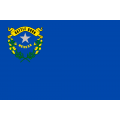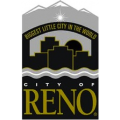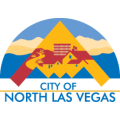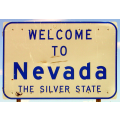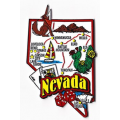Nurses are the frontline providers of Nevada’s healthcare services. They are essential in the delivery of day-to-day patient care in a variety of settings that reach beyond hospitals and clinics. For example, many nurses work in long-term care facilities, nursing homes, health maintenance organizations, and outpatient surgicenters. The need for nurses in virtually every healthcare setting has made nursing the largest healthcare profession in the U.S.
Overview of nursing roles
Nevada
We've organized a comprehensive list of Nevada nursing schools. Below you'll find information on specific nursing programs such as LPN certificates and ADN, BSN, and MSN degrees. You'll also find a profile of nursing education and careers in each major Nevada city.
Registered nurses (RNs) comprise two-thirds of the 5,000-person nursing workforce in Reno, Nevada. Feeding this workforce are local schools such as University of Nevada, Truckee Meadows Community College, and Carrington College. Through these schools, aspiring RNs may pursue either a two-year associate’s degree in nursing (ADN) or a four-year bachelor of science in nursing (BSN).
Other nursing roles and training programs
Nursing employment is on the rise. Each of the four critical nursing roles is projected to grow much faster than average over the coming decade. Certified nursing assistants (CNAs) will increase by 21 percent, while licensed practical nurses (LPNs) will grow by 25 percent. Registered nurses (RNs), the largest workforce in the healthcare industry, will experience robust 19 percent growth, and advanced practice registered nurses (APRNs) will increase by 31 percent. Nursing is certainly one of America’s most stable careers.
Nursing education programs
With the demand for nurses far exceeding supply, a nursing career provides job security and attractive pay. Those considering a career in nursing may choose from several schools in the Las Vegas Valley. University of Nevada, Las Vegas (UNLV) and College of Southern Nevada are two excellent public options within the Las Vegas city limits. Just 16 miles away in nearby Henderson, students will find additional options such as Everest College and Nevada State College.
Nursing roles and programs
Nursing is the largest healthcare profession in the United States. Henderson, Nevada, is part of the Las Vegas metropolitan area which has over 17,000 licensed nurses, including certified nursing assistants (CNAs), licensed practical nurses (LPNs), registered nurses (RNs), and advanced practice registered nurses (APRNs). Together, these four roles are the frontline providers of patient care, though their individual scopes of practice differ significantly.
Overview of nursing roles
Higher education paves the way for employment opportunities in today’s rapidly advancing healthcare industry. Nevada’s major nursing employers, such as St. Rose Dominican Hospitals and the Department of Veterans Affairs, are actively filling positions with more specialized requirements. This includes positions in nursing administration, nursing education, and family practice nursing, all of which require a master of science in nursing (MSN) degree.
As the U.S. population ages and the provision of healthcare grows increasingly complex, healthcare employers are seeking out registered nurses (RNs) with at least a bachelor of science in nursing (BSN). In fact, the Institute of Medicine recommends that 80 percent of nurses hold a BSN degree by 2020. BSN-educated nurses often hold superior skills in critical thinking, leadership, case management, and health promotion.
BSN program overview
There are several common nursing roles in the United States, including certified nursing assistant (CNA), licensed practical nurse (LPN), and registered nurse (RN). Registered nurses comprise the largest group of nursing professionals, with more than 17,000 RNs employed in Nevada alone. The role’s popularity may be due in part to its attractive salary: Nevada’s RNs earn almost $80,000 per year on average.
Associate’s degree in nursing overview
Licensed practical nurse (LPN) is one of four nursing roles in the country’s healthcare system. Most LPNs are generalists in charge of taking vitals, administering basic care such as changing bandages, and keeping patients’ records. Typically, LPNs work under the supervision of registered nurses (RNs), who are more senior and carry added responsibilities such as independently administering medication. LPNs work in various healthcare settings such as hospitals, offices of physicians, nursing care facilities, and private homes.
LPN training programs
With major employers like St. Rose Dominican Hospitals, the Department of Veterans Affairs, and Genesis HealthCare on the lookout for new nurses, Nevada’s healthcare job market is very robust. The Bureau of Labor Statistics predicts a shortfall of registered nurses (RNs) within ten years. This shortfall will be felt in all sectors of the healthcare industry, including hospitals, long-term care facilities, hospices, the military, and insurance providers.
Nursing programs overview
Many of the nation’s top colleges are private. Private colleges typically offer an excellent student-to-faculty ratio, a unique curriculum, and a close-knit school community. Private institutions also tend to be associated with prestige. Private schools are often more expensive than public schools since they are not subsidized by the state government. However, for many aspiring nurses, the benefits of a private school education more than justify the increased cost.
Overview of private nursing schools

